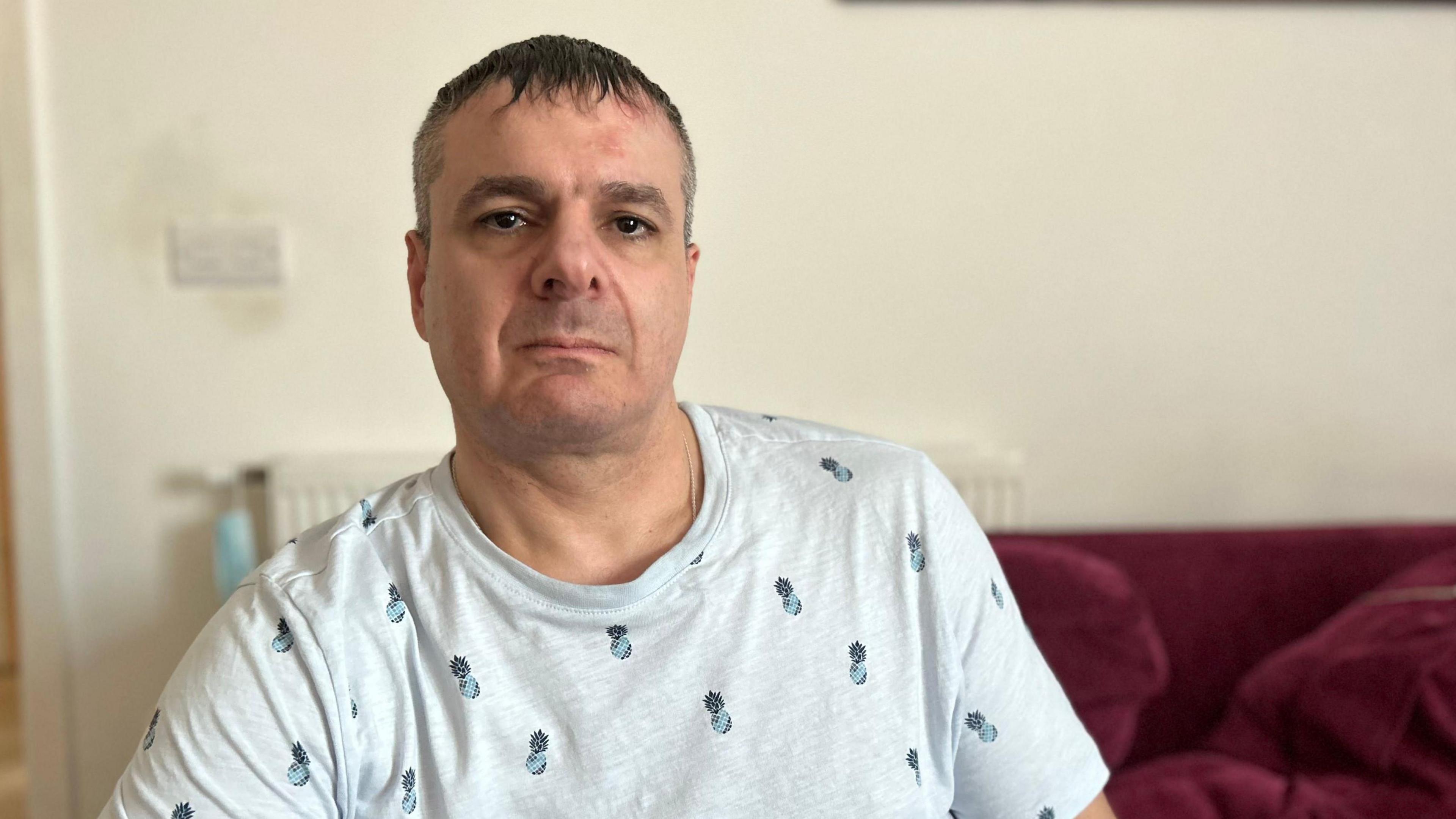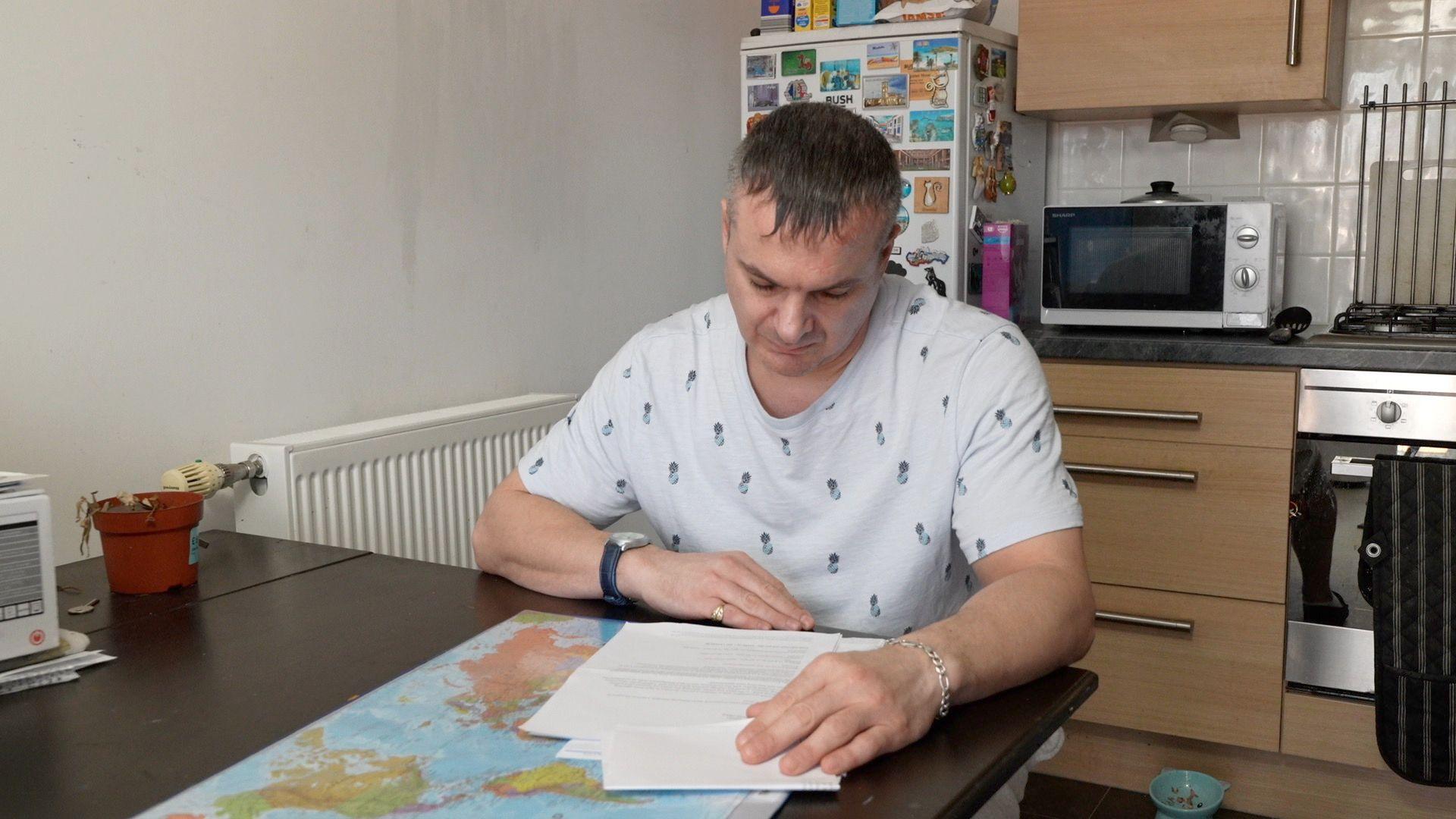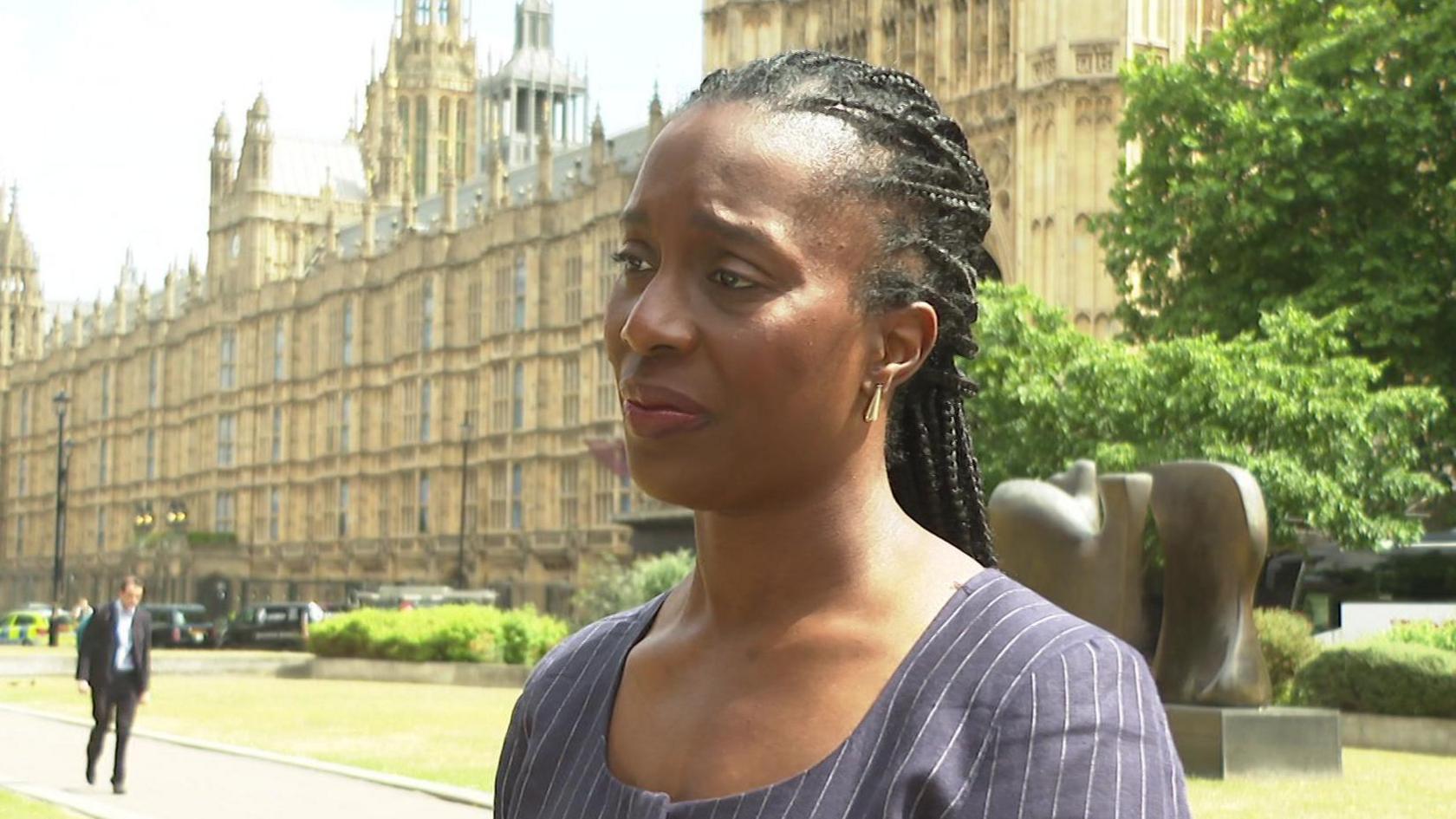Shared ownership: A 'gimmick' or here to stay?

"It seemed like the cheapest option so I decided to give it a try," Lee told BBC London
- Published
"It's vital that we don't see the next generation of homeowners caught up in these issues," says the chair of the Commons Housing Committee in response to a BBC investigation into shared ownership which revealed complaints over costs, transparency and repairs.
Florence Eshalomi MP says the committee wants to know how much of the recently announced £39bn government investment in social and affordable housing will be spent on different tenures including the part-buy, part-rent scheme.
More shared owners have got in touch with the BBC to express their concerns, including Lee, who says the scheme is a "gimmick".
The government told BBC London: "Shared ownership has a role to play in supporting households into home ownership, but we are aware of the challenges faced by some who have entered the scheme."
Since the BBC investigation was published, more people have got in touch to talk about their issues with shared ownership, including difficulties in selling.
Lee emailed in because he wanted "people to know about the problems before they consider buying one".

"They make it look affordable but there are a lot of snags that come with it," Lee says
He bought 40% of a shared ownership one-bedroom flat in north-west London in 2012. Its value was £174,000 and his share cost £70,000.
"It seemed like the cheapest option so I decided to give it a try."
But 13 years on, he says he believes the scheme is "a gimmick".
He adds: "They make it look affordable but there are a lot of snags that come with it.
"They glamorise it but in the process of buying they don't tell you the service charge could triple, Section 20 notices."
He has been issued with a number of bills totalling about £5,000 through Section 20 notices - formal notifications that a landlord intends to carry out major works - including for one bit of work that involved the painting of a wall in the colours of a housing association's logo.
Lee believes that leasehold issues "are intertwined" with shared ownership, which hasn't been a "transparent" option.
"Even though you don't own the whole flat, you still get all the obligations as if you own the whole thing.
'The joy has gone'
Lee put his house on the market in July 2024 for £250,000 but after a lack of interest, it was reduced to £215,000 in June.
Shared ownership sales are normally subject to a nomination period during which the housing association or landlord has the exclusive right to find a buyer for the home, but Lee managed to have that process waived.
"I decided the best thing to do is come out. The last six months I've been with a high street agent but I've had no joy. I've had one viewing. Now the only option is to go through quick sell which means I get a lot less money."
Lee wants to go back to private renting because "at least you know where you stand".
He says it's had a huge impact on his mental health, and "the joy out of living has gone".

Florence Eshalomi says "it's important we have the homes for people to stay in London"
Responding to the BBC investigation, Eshalomi said: "It is quite worrying when you see the amount of complaints going to the ombudsman - and 44% for London
"I think it is around working with the sector about what steps they are putting in to improve this, and engaging with residents and the transparency of the charges.
"When you've got people feeling like they're trapped, like they've got nowhere to go to. We need to look at the financial impact this is having on so many people.
"It's really important that we look at how this has happened and what we can do to help."
As part of the current five-year affordable homes programme due to be completed in 2026, the government is aiming to build up to 180,000 homes for people whose needs are not met by the private market. Some 44,000 to 56,000 of these will be affordable homes for ownership - most of these will be shared ownership., external
In June, the government announced £39bn of investment for affordable homes over 10 years to deliver on the government's goal of building 1.5 million new homes.
While the government has yet to give details, it has confirmed it will "prioritise social rent homes" and "fund other kinds of homes including shared ownership and affordable rent".
Further details will be published shortly on the tenures of homes and the schemes the investment will fund, as well as the timeline for opening bids.
Sue Phillips from Shared Ownership Resources, a project championing the interests of shared owners, says the homes on the scheme "come in a variety of forms, with different levels of risk and benefit".
She adds a "lack of national data and robust, independent research on long-term outcomes for different demographics" makes it "more challenging to identify precisely what role shared ownership should play in the new £39bn Affordable Homes Programme".
'Concrete steps'
Jo Short from the Shared Ownership Campaign, which educates and informs potential buyers, says the scheme "won't be for everyone, but it provides a way to take a step on to the property ladder for those locked out of the open market. It is an option to consider when the only alternative is renting privately.
"The introduction of Key Information Documents for every shared owner, along with two-factor affordability assessments and greater flexibility all ensure that shared ownership will continue to evolve."
A Ministry of Housing, Communities and Local Government spokesperson said: "Shared ownership has a role to play in supporting households into home ownership, but we are aware of the challenges faced by some who have entered the scheme.
"We are considering what more can be done to improve the experience of shared owners, alongside consulting this year on implementing measures to drive up transparency of service charges."
The BBC understands talks with the Greater London Authority over the capital's share of the funding are ongoing.
Tom Copley, the deputy mayor of London for housing and residential development, said: "The mayor has taken concrete steps to support the affordability of shared ownership homes for Londoners, including using planning powers to determine that housing costs for shared ownership should not exceed 40% of a household's net income and setting best practice for housing providers in managing service charges.
"We will continue to work with the government to ensure there are greater protections for Londoners who have bought their homes through shared ownership and that London has the share of funding it needs to deliver more new social and affordable homes."
Listen to the best of BBC Radio London on Sounds and follow BBC London on Facebook, X and Instagram. Send your story ideas to hello.bbclondon@bbc.co.uk